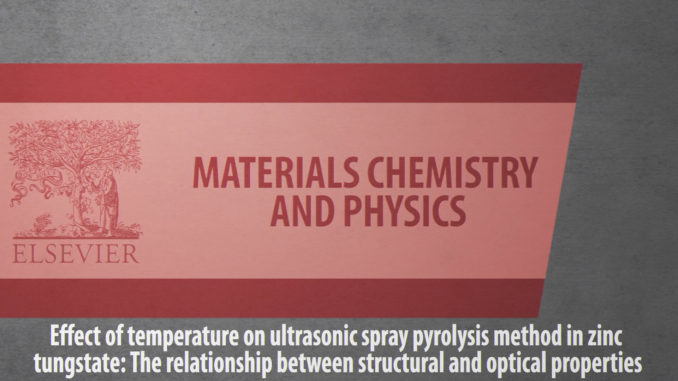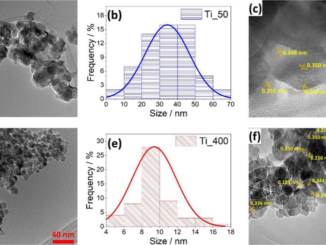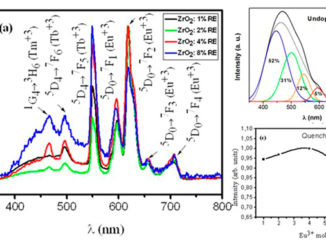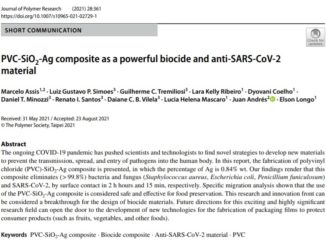
Effect of temperature on ultrasonic spray pyrolysis method in zinc tungstate: The relationship between structural and optical properties
Abstract: Zinc tungstate is an inorganic material which shows immense potential in diverse areas such as photoluminescence, sodium-ion batteries, and catalysis. Thus, the synthesis and characterization of ZnWO4 by ultrasonic spray pyrolysis using different heat treatments (between 750 °C and 1000 °C) is reported herein. X-ray diffraction and Raman spectroscopy were used to confirm the formation of the ZnWO4 with wolframite-type monoclinic structure. Scanning electron microscopy images revealed that the ZnWO4 particles have a microsphere-like morphology formed by the junction of different nanocrystals and its surface changed by heat treatment. The bandgap energies had a small variation among the samples (3.88 eV–3.98 eV). The photoluminescence emission of the samples showed a broadband spectrum with white light, in which structural alterations occurred with the increase in the heat treatment, which also increased the emission intensity and broadband. The samples synthesized at 950 °C and 1000 °C showed to be promising warm- and neutral-white light emission sources.
Author(s): Santiago, A.A.G.; Tranquilin, R.L.; Li, M.S.; Longo, E.; Motta, F.V.; Bomio, M.R.D.
Materials Chemistry and Physics
Published: 15 January 2021, Volume 258, 123991
Baixar
DOI: https://doi.org/10.1016/j.matchemphys.2020.123991
CDMF
The CDMF, hosted at the Federal University of São Carlos (UFSCar), is one of the Research, Innovation and Dissemination Centers (RIDC) supported by the São Paulo State Research Support Foundation (Fapesp), and also receives investment from the National Council Scientific and Technological Development (CNPq), from the National Institute of Science and Technology of Materials in Nanotechnology (INCTMN).




